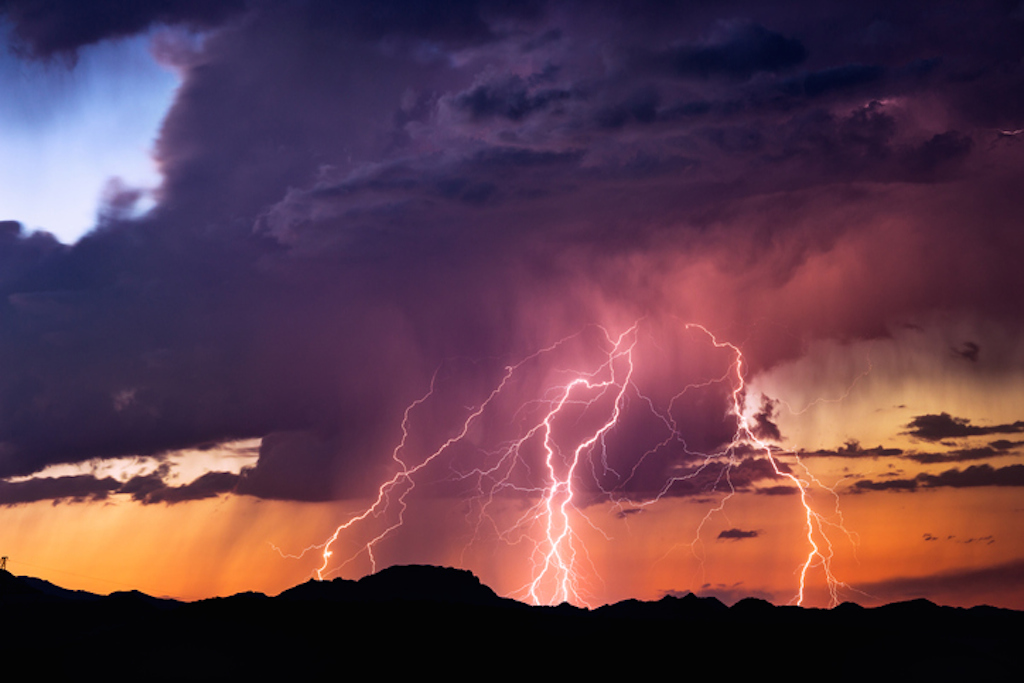rumble
(noun, verb)
/ˈrʌmbəl/
 LISTEN
LISTEN


If you see lightning, you'll almost certainly hear a rumble of thunder a few seconds later.
As a verb, rumble means ‘to make a deep continuous sound,’ like thunder and, in reference to vehicles, it means to move with such a sound. Rumble also means ‘to say with a rumbling sound’. Informally, in UK English, it means ‘to discover a secret activity’ and, as a slang term, it means ‘to take part in a street fight between gangs,’ although this meaning is now dated. As a noun, a rumble is a rumbling sound or a street fight.
Example sentences
- Thunder rumbled in the distance.
- Trucks rumbled past on the road.
- In a deep voice, the old man rumbled his thanks.
- John was trying to arrange a surprise birthday party for his wife, but she rumbled him when she overheard him on the phone to her friends.
- The teenage gangs have been rumbling a lot lately.
- The rumble of traffic kept Belinda awake.
- The leader of the gang told all the members about a rumble planned for Saturday night.
Words often used with rumble
rumble on: to continue for a long time without being resolved. Example: “The debate has been rumbling on for months now and there’s still no end in sight!”
rumble strip: a strip on the side of a main road, designed to make a rumbling noise when a car’s tires go over it, in order to warn the driver that they are going off the road.
Did you know?
Perhaps one of the most famous uses of the word rumble was as the title for the 1974 boxing match between George Foreman and Muhammad Ali, held in Zaire and known as “The Rumble in the Jungle.” Foreman was the reigning heavyweight champion and Ali beat him to take the title. It was one of the best-known sporting events of the 20th century and there are many cultural references to it in music, film, and literature. It was also the subject of an Oscar-winning documentary When We Were Kings.
In pop culture
Listen to the Fugees with their song “Rumble in the Jungle” here. The video uses imagery and words from the famous fight described above.
Other forms
rumbler (noun), rumblingly (adverb)
Origin
Rumble, meaning ‘to make a deep, continuous sound’ or ‘to move with a rolling, thundering sound,’ as well as, figuratively, ‘to create disorder or confusion,’ dates back to the late 14th century. Its origin is uncertain, but it is thought to be related to the Middle Dutch rommelen (to rumble), the Middle High German rummeln and the Old Norse rymja (to shout or roar), all of which are imitative in origin. The slang sense ‘to take part in a street fight’ dates back to the 1940s. The noun, meaning ‘a deep, continuous sound,’ also dates back to the late 14th century, and comes from the verb. The sense ‘a street fight’ is from the 1940s.
Word of the Day is released Monday through Friday.



